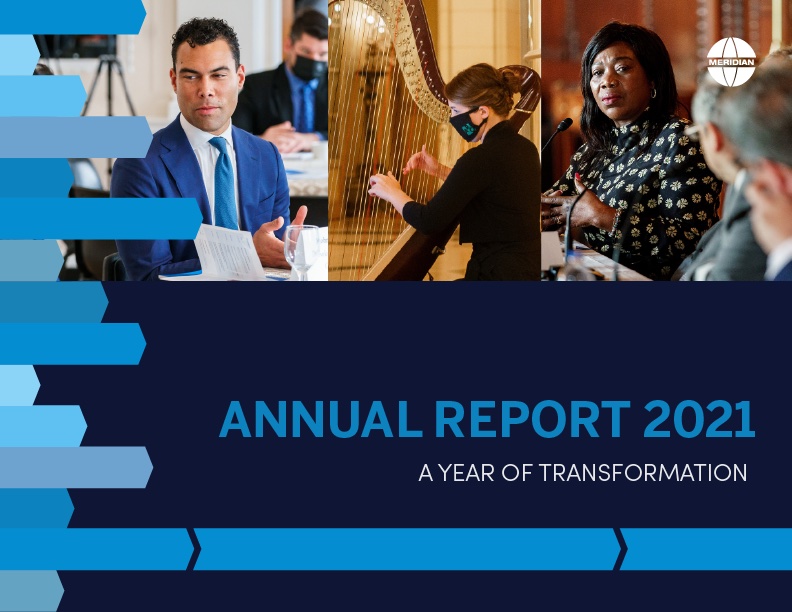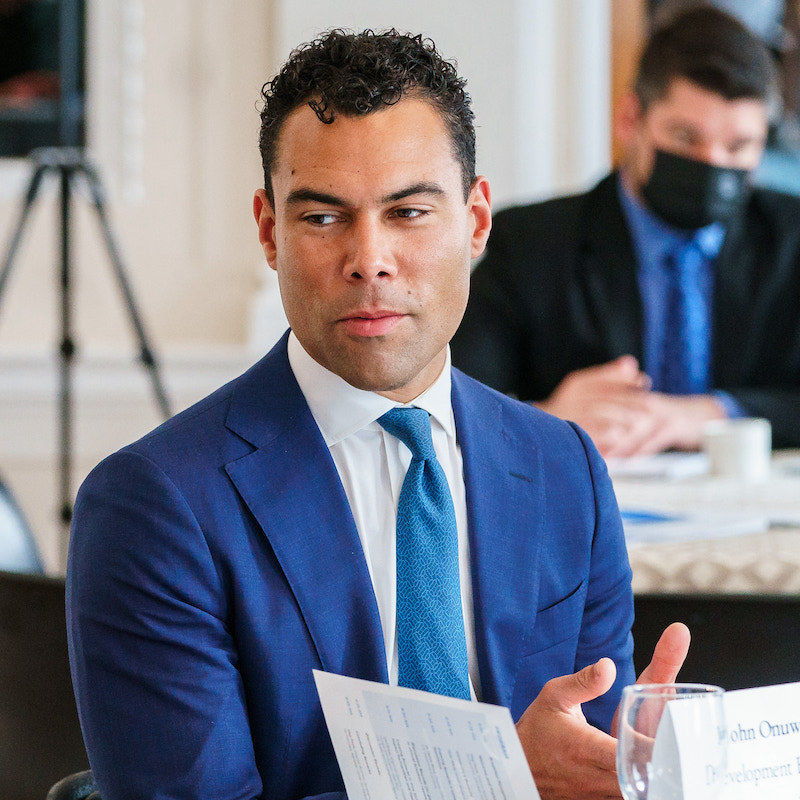
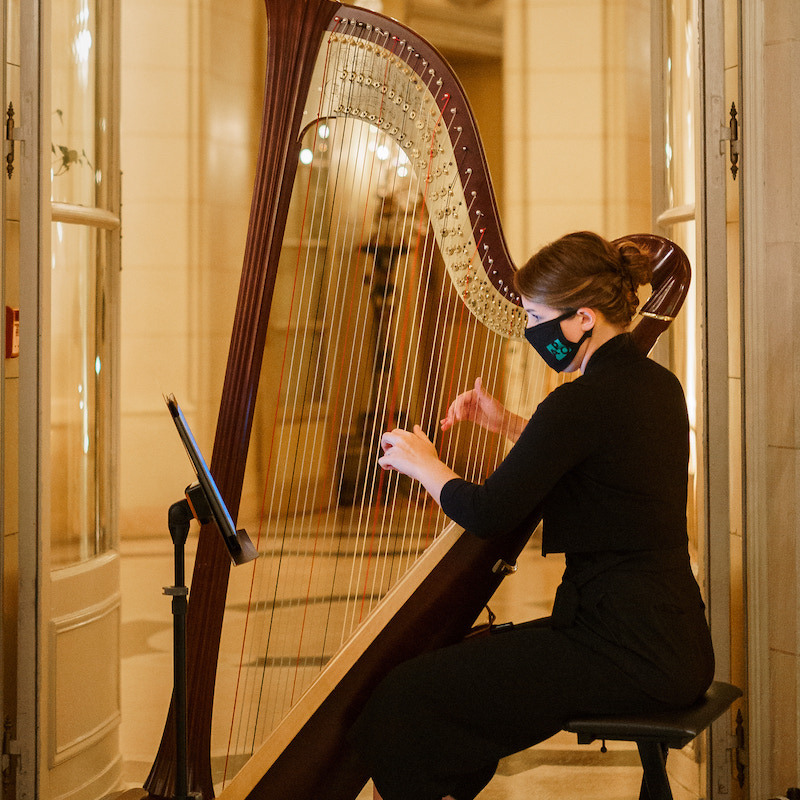
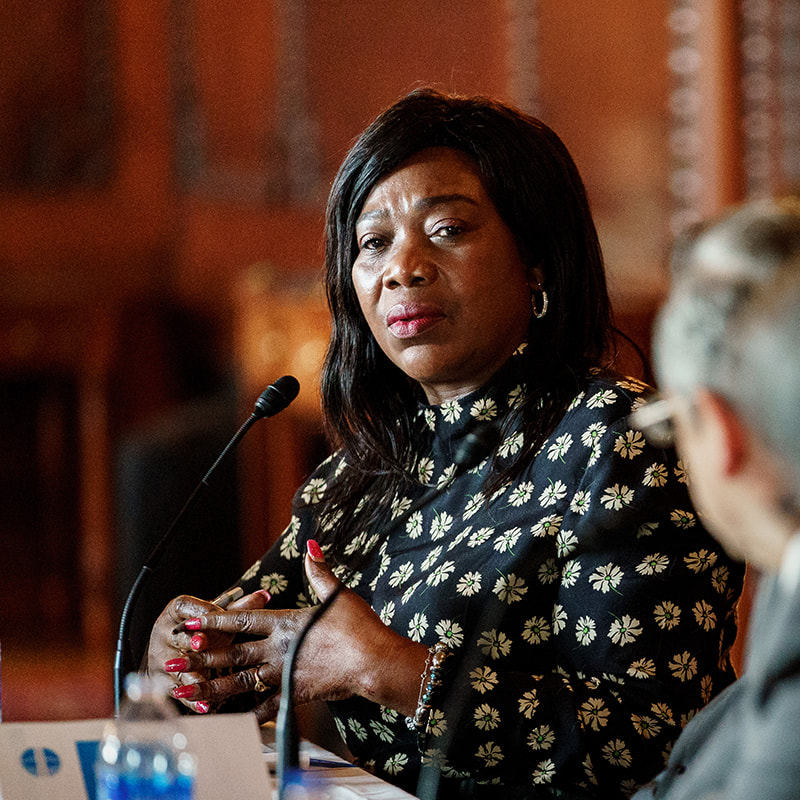
Annual Report 2021
A year of transformation

A message from our CEO
A year of transformation
While the ongoing pandemic could easily define this past year, the disruption and transformation that emerged out of the ensuing public health crisis – alongside other global challenges – is a more accurate characterization of 2021. The year began with a test of American democracy, the withdrawal from Afghanistan, supply chain shortages as well as criticism around the lack of diversity among our diplomats. While Meridian continued its focus on global health diplomacy, we addressed this diverse array of challenges using new and innovative approaches.
After having made a strong pivot to virtual programming in 2020, Meridian applied key learnings to inform our 2021 hybrid engagement approach such as virtual networking receptions through interactive platforms and newly imagined events to allow for creative audience engagement.
Given the fragile state of the global economy and dissonance in U.S. politics, Meridian called on more domestic leaders like Oklahoma Governor Kevin Stitt, Secretary of the Interior Deb Haaland, Senator Bill Hagerty (R-TN) and others who engaged both American citizens and international leaders on globally relevant issues that had local impacts. We also welcomed new Board members who come from all corners of the United States, extending the reach of our bridge to America beyond Washington. Part of Meridian’s transformation this year involved digging into challenges on the home front, thereby strengthening the value proposition of why international engagement matters for Americans.
Meridian also responded to the challenge of increasing the diversity and skills of our foreign policy professionals by amplifying leading voices on diversity and inclusion in global affairs through our annual Diplomacy Forum. There, we launched DiplomacyRISE, an inclusive professional development program that builds a pipeline for the next generation of U.S. diplomats who are more reflective of the U.S. population and are equipped with skills to lead in emerging topic areas. Meridian is working closely with allies, the State Department as well as universities and community colleges on this effort.
Our inaugural Culturefix this summer established Meridian as a hub for cultural diplomacy in Washington by working with partners to catalyze collaboration in the creative sector, build communities of interest between countries and cultures, and honor leaders with the Cultural Diplomacy Awards. The end of 2021 opened a window of opportunity to gather safely for the Meridian Ball while also testing our hybrid capabilities to simultaneously offer virtual and in-person programming in the annual Global Leadership Summit. Throughout the year, we consolidated the necessary adaptation from COVID to reach new audiences through clever, relevant messaging and magnified our digital and social media footprint.
Meridian’s work requires all of us. Our ability to equip leaders in the U.S. and around the world while strengthening global relations would not be possible without our Board of Trustees and talented staff who have tirelessly worked to champion our mission during challenging circumstances. We are grateful for the generous support of our funding partners and the great work of Meridian’s finance team that works innovatively to achieve organizational financial goals and ensure long-term sustainability. Also, we are extraordinarily proud of Lee Satterfield, Meridian’s recent Chief Operating Officer and President, who was appointed and confirmed to lead as Assistant Secretary of State for Educational and Cultural Affairs.
As we continue to transform as an organization, Meridian looks forward to collaborating with all our partners to transform global challenges into opportunities in the coming year.
ambassador stuart hollidayCEO of Meridian International Center
About us
About Meridian
About Us
Meridian is a nonpartisan diplomacy nonprofit that catalyzes collaboration among leaders in order to drive solutions to the greatest shared global challenges of our times. In 1960, Meridian was founded with a vision to promote greater international understanding. Since our inception, we have continued to serve as a central hub for the diplomatic community and a home for thousands of international participants of our global leadership and cultural exchanges.
For over 60 years, we have equipped thousands of leaders with networks, insights and cultural context essential for non-partisan work on shared issues.
Our Mission
Meridian strengthens engagement between the United States and the world through diplomacy, leadership and culture to solve shared global challenges.
Our Vision
Meridian believes the United States is stronger and the world is safer when leaders collaborate across countries and cultures.
Our Core Values
Meridian’s core values reflect the collective principles and beliefs of our staff, serving a purpose to guide both the internal culture of our workplace and the external impact of our work and partnerships.
Over the course of six months, through a series of discussions and surveys, staff across the organization collaborated on an iterative process to conceptualize, revise and produce the following set of core values, each with a corresponding statement that demonstrates how the value manifests in ourselves and our work together with our network.
Global Community
Innovation
Equity, Diversity and Inclusion (EDI)
Collaboration
Our pillars
Global Leadership
Cultivating the next generation of leaders to navigate global challenges and opportunities
Every year Meridian hosts thousands of emerging leaders from around the world for exchange and training programs on topics ranging from women's economic empowerment to global entrepreneurship and countering violent extremism. Leaders gain the insight, networks and cultural context needed to navigate global challenges and opportunities.
Diplomacy
Accelerating collaboration among diplomatic, business and government leaders
Meridian serves as a powerful platform to connect government, business and diplomatic leaders to exchange perspectives and accelerate collaboration on a range of global issues, from trade and national security to technology and health care, while closing the gaps among these sectors. As a neutral, non-partisan organization, we are uniquely positioned to convene dialogues between leaders across borders, parties, industries and cultures.
Culture
Harnessing the arts to bridge communities through cross-cultural exchange
From vibrant visual art displays to film screenings, exchanges and concerts, Meridian’s cultural programs advance diplomacy goals by providing a common language that breaks down barriers and brings together the public through shared interests and values. Our programs have reached millions of people in more than 310 cities in 79 countries worldwide.
january 2021
A test of american democracy
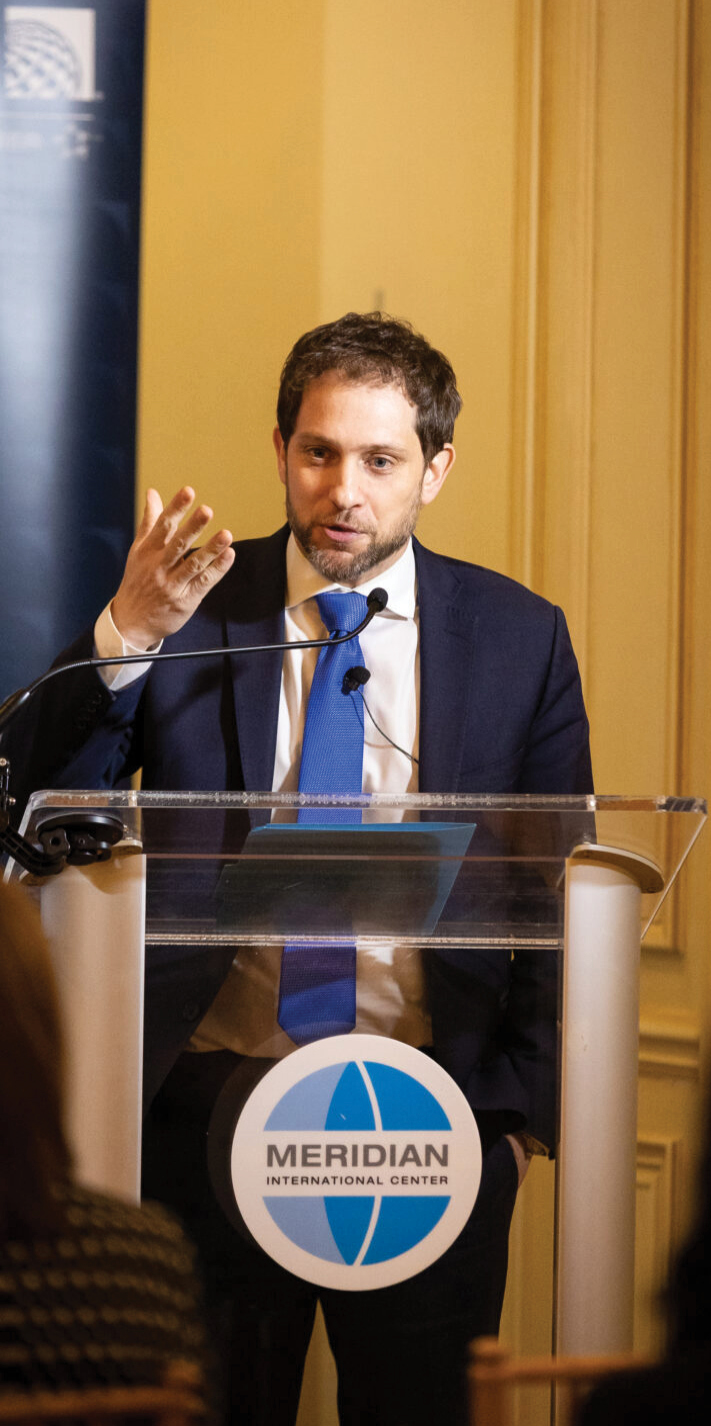
For over 60 years, Meridian has served as a window for leaders around the world to view American democracy through international exchange programs. The appalling attack on the U.S. Capitol on January 6, 2021, was an assault on our country’s democratic process and in direct contrast to Meridian’s values.
Through your investment in our mission, generations of our staff have proudly crafted thousands of professional leadership programs through the foundational lens of the U.S. system of federalism. We have walked the halls of the U.S. Capitol with international leaders, connecting them to elected officials and discussing the shared democratic values we hold dear: free and fair elections, the rule of law and the defense of human rights. In response to the January 6 attack, Meridian has redoubled its efforts to provide a platform for truth seeking, collaborative solutions and equitable justice for all.
We reaffirmed our democratic values throughout the year, culminating with Principal Deputy National Security Advisor Jon Finer joining Meridian for a fireside chat timed to coincide with President Biden’s Summit for Democracy in December. Finer discussed the importance of revitalizing alliances and partnerships around the world and across sectors and demographics to confront shared global threats. Our Center for Global Leadership hosted programs prioritizing transparency, accountability and the rule of law, and a virtual reporting tour on the 2020 U.S. Elections.
Back on the global stage
Upon inauguration as the 46th President of the United States, Joe Biden rejoined the Paris Climate Agreement signaling a commitment to the road to COP26.
In April 2021, the United States hosted an inaugural Leaders Summit on Climate that virtually convened 40 leaders around the world to outline their countries’ commitments to stronger climate ambition.
As part of Meridian’s Global Journalism Initiative, the spokespersons for the U.S. Department of State and the National Security Council, Ned Price and Emily Horne, led a discussion on press freedom as both a national and a global security priority. Private sector leaders on Meridian’s Corporate Council met with U.S. Trade Representative Katherine Tai who shared insights on Biden’s trade policy strategy as well as National Security Council Senior Director for the Western Hemisphere Juan Gonzalez who spoke to the importance of strengthening the North American relationship.
First Lady Jill Biden, Secretary of State Antony Blinken and United Nations Ambassador Linda Thomas-Greenfield hosted an award ceremony for the 15th anniversary of the International Women of Courage (IWOC) program that honored 13 women from all over the world for their courage and leadership in advocating for peace, justice, human rights and gender equality, often at great personal risk and sacrifice. Meridian was proud to administer an International Visitor Leadership Program for the 2021 IWOC awardees.
february 2021
Black leadership and diplomacy
Lisa [Ross] continuously steps up to support our critical mission of strengthening international collaboration. She has been instrumental in bringing her leadership in diversity, equity and inclusion to guide Meridian’s own efforts, as we strive to create pathways for greater understanding, shared values and respect for all people and cultures.Lee Satterfieldformer President and COO,Meridian International Center
Coming into the year with a heightened urgency on diversity, equity and inclusion and recognizing the ongoing struggle to advance racial equity here in the United States, Meridian aimed to empower international leaders and amplify underrepresented voices. To create pathways for greater understanding, shared values and respect for all cultures, we hosted cultural, diplomatic and business leaders throughout the year in conversation on our changing global society.
We marked 2021 Black History Month by honoring the legacy of Black leaders in diplomacy and the private sector. We created external campaigns to showcase the rich multicultural experiences of the American people to international audiences. In collaboration with Flowstate Films, Meridian hosted a virtual discussion with the filmmaker of the documentary “The American Diplomat,” which focuses on three Black diplomats – Edward R. Dudley, Carl T. Rowan, and Terence Todman – who paved the way for a more diverse State Department during the Cold War and Civil Rights Movement.
We sat down with Lisa Ross, Edelman U.S. CEO and Meridian Trustee; Oscar Munoz, United Airlines Executive Chairman; and John Rice, Founder and CEO, Management Leadership for Tomorrow, to examine how corporate leaders are accelerating change to build a more diverse and inclusive workforce.
march 2021
Marking one year of covid
From medical supply chain resiliency to equitable vaccine distribution, the impact of COVID-19 grew more nuanced. The convergence of public health and other international issues, such as women’s rights and flight safety to reconnect the world, demonstrated the complexity, interconnectedness and global dependencies of the pandemic.
While COVID-19 is not yet behind us, the past year demonstrated the power of collaboration and international engagement required to create valuable solutions for this shared global challenge and transform the world’s public health systems.
It’s so exciting that we are getting back to opening doors and welcoming the guests ... Meridian has been a really good partner throughout the years, opening a lot of doors to foreign diplomats in the Executive [Branch], Congress and the private sector, so we are excited to be part of this.david bakradze, ambassador of georgiain the Washington Diplomat
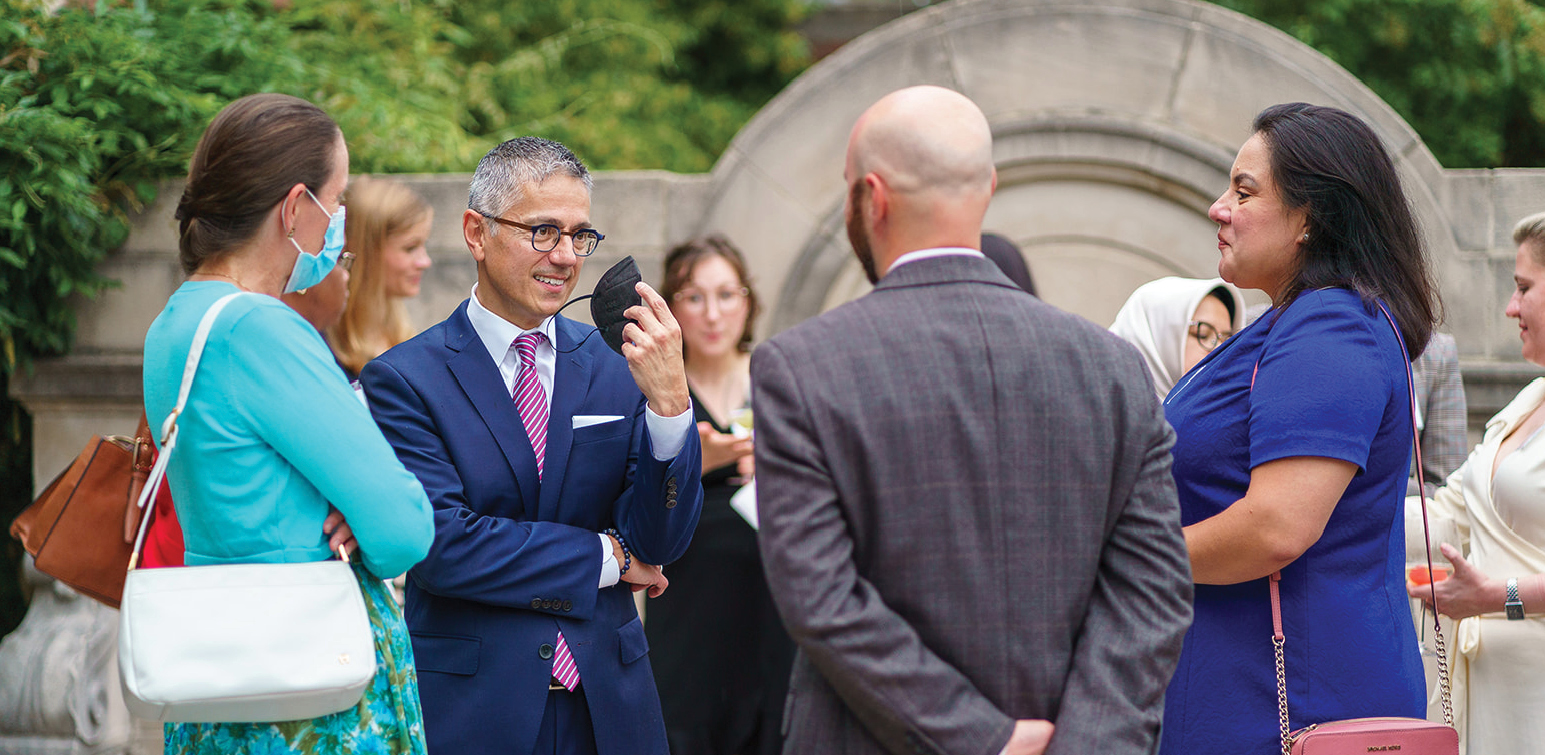
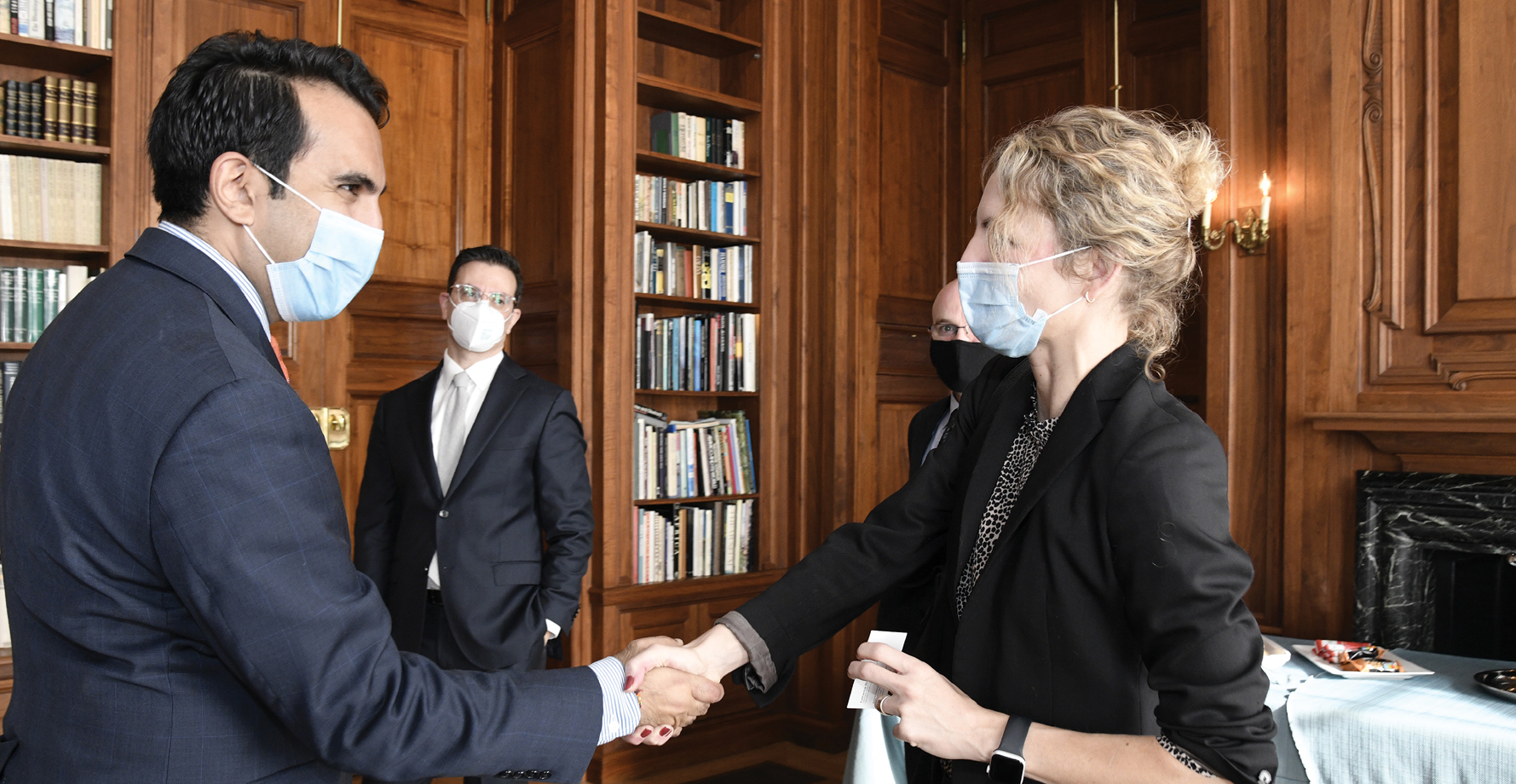
april 2021
Diversity in diplomacy
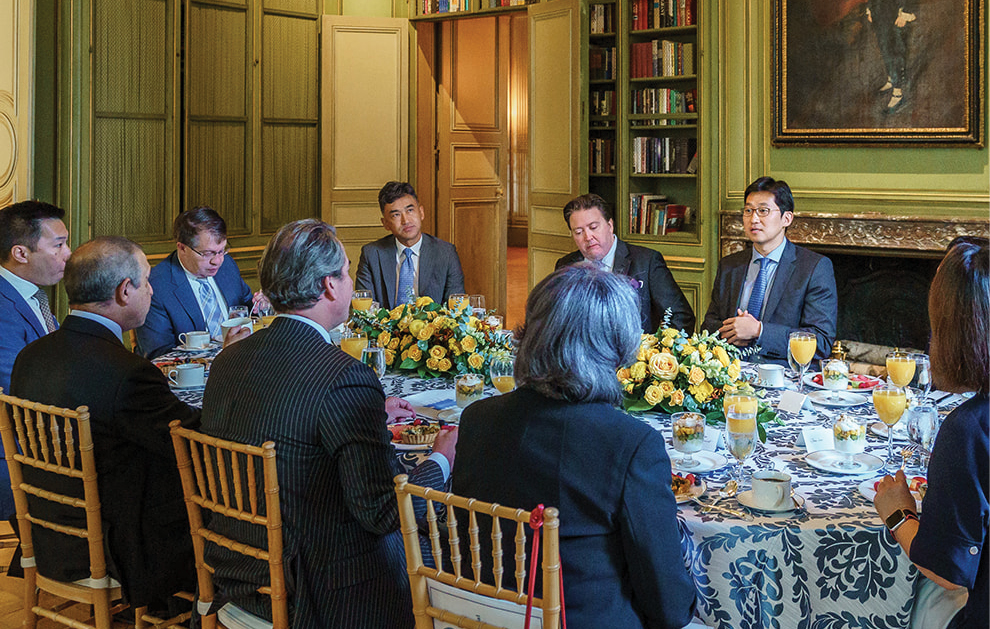
Coinciding with global cries to #StopAsianHate and many other concurrent trends, the U.S. Department of State took a hard look in the mirror after reports found a significant lack of diverse racial and ethnic representation among U.S. foreign service officers and senior officials. These findings propelled Meridian to discuss race in America through the lens of diplomacy at the annual Diplomacy Forum. This event was reimagined in 2021 to examine how to re-conceptualize U.S. diplomacy and, most importantly, the people who power it in order to best reflect America’s diversity and strengthen American statecraft.
We also launched DiplomacyRISE, an inclusive diplomatic professional development program that provides greater access to critical skills training, career guidance networks and emerging issue expertise to cultivate the next generation of U.S. diplomats that are equipped with 21st century statecraft skills and knowledge. Through this initiative, Meridian has partnered with the Rangel International Affairs Fellows Program at Howard University, the National Science Policy Network, Global Community College Transfer Network, Theodore Roosevelt High School in Washington, D.C., and other institutions to expand access to global affairs careers and increase the representation of diplomats abroad to be more reflective of the U.S. population. Our call for American diplomats to look more like America has resonated with our audience and the world, earning Meridian a spot on the big stage at SXSW EDU 2022.
may 2021
Navigating a hybrid digital world
As we adapt to unprecedented times, Meridian continues to safely proceed with virtual and in-person events by fostering spaces for collaboration in Washington, D.C. and beyond.
As we’ve transformed and adapted to a new age of programming, we have innovated how we connect leaders across the globe by blending the best of live and virtual. The Meridian Center for Diplomatic Engagement hosted “Understanding Washington: U.S. Foreign Assistance,” "Sprinting Towards Vaccine Equity" and an Insights@Meridian program with Oklahoma Governor Kevin J. Stitt. All events had a virtual component to involve participants who were unable to attend in person.
The Meridian Center for Global Leadership also hosted one of the first in-person International Visitor Leadership Programs in two years: Contribution of Television Programs to Civic Debate in the United States: A Project for Cameroon. Sessions held on Meridian’s campus explored the role of the federal government and freedom of the press in the United States. Having learned from the unpredictability of 2020, Meridian invested in internal capabilities, technology and safety measures to elevate the quality of our programming, adaptable to any format or scenario – without compromising on the participant experience.
With our venture into hybrid programming, we are encouraged by the possibilities to engage our participants in new, innovative and unique ways over the next year.
june 2021
Healing the world through culture
After over one year of a pandemic that hit the global creative sector especially hard, Meridian designed a new initiative to honor the important role of cultural diplomacy in rebuilding and reuniting the world. Culturefix was Meridian’s inaugural cultural diplomacy celebration that brought together artists and cultural leaders for conversations ranging from rebuilding the creative economy to the arts’ role in global humanitarian issues. Midori and Divinity Roxx performed at the evening awards ceremony honoring pianist Jean-Yves Thibault and visual artist Teresita Fernández for their ongoing commitment to using the arts and culture to unite people around the world.
The in-person component of Culturefix was the first event held at Meridian since March 2020. On the heels of Cultural Diversity and Awareness Month, when artists around the world were calling for "the Dr. Fauci of the Arts and Culture" to help rebuild the creative sector, it was particularly special and emotional to gather while enjoying the arts in the company of others.
In recognition of the resiliency of the arts in these new times, Meridian administered the first IVLP project on virtual reality, in which participants from Egypt explored commercially available virtual and augmented reality tools to aid in transforming their publishing industry. The Meridian Center for Cultural Diplomacy hosted the producers and star of the documentary film "Call Me Dancer," which follows the journey of an Indian ballet dancer trying to break into the professional dance world while breaking cultural norms. We also co-hosted the Global Humanities Symposium with the National Endowment for the Humanities to amplify contemporary scholarship that focused on cultural exchange, museums’ role in cultural diplomacy and digital public humanities.
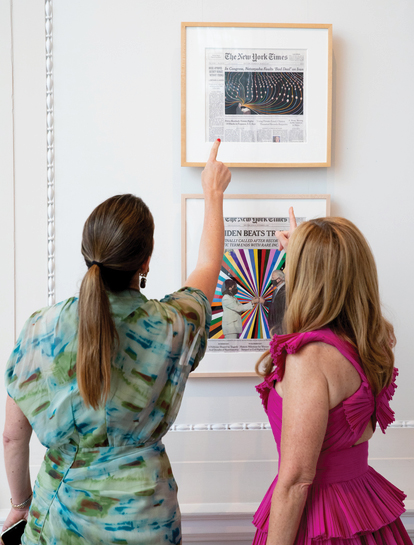
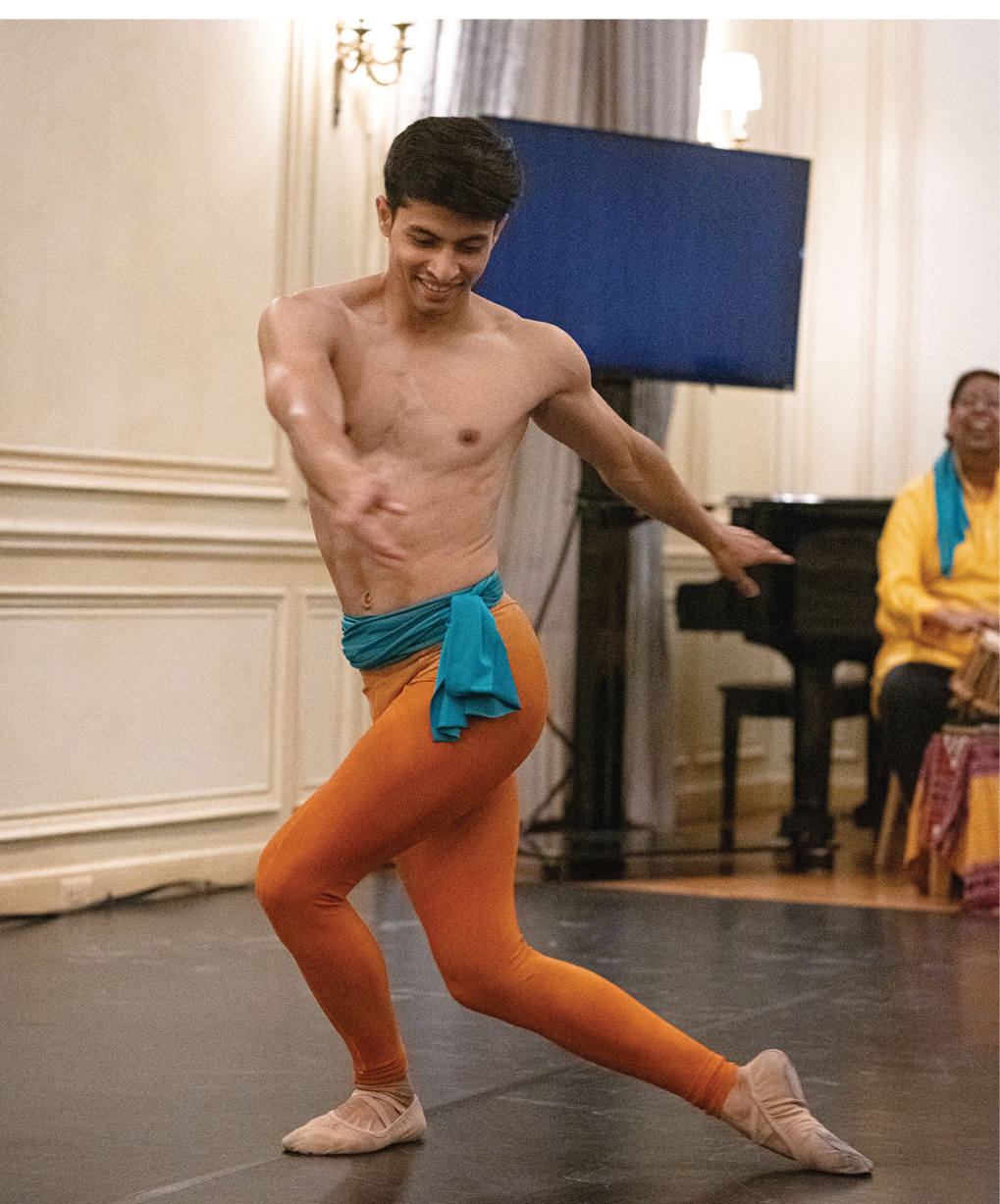
july 2021
Insights from world leaders
august 2021
Empowering youth leaders
Throughout 2021, Meridian worked closely with the U.S. Department of State and partners across the United States to re-imagine our program offerings for inspiring youth audiences across the globe. Specifically, we developed and delivered innovative and engaging leadership development curriculum straight to participant mobile devices and home computers around the world while activating a robust alumni community.
After a successful virtual alumni reunion in 2020, Meridian was eager to reconvene the Pan African Youth Leadership Program (PAYLP) network of more than 800 high-school-aged young leaders and adult mentors from 40 African countries. Over three days, we held our second PAYLP Alumni Reunion convening participants from over 26 countries who reconnected with old friends, networked across cohort years, participated in interactive skills-building workshops, and “zoomed across America” to learn about the diversity of the United States.
Meridian engaged local PAYLP alumni to help 2021 PAYLP participants access the necessary technology to actively and meaningfully participate in a virtual program. Once online, participants embarked on a journey to build civic engagement, leadership and social entrepreneurship skills while fostering cross-cultural bonds throughout the African continent and with American citizens. The program culminated with a two- part capstone where participants designed civic engagement and sustainable solutions to issues in their local communities.
We continued our partnership with the U.S. Department of State by virtually engaging over 120 international undergraduate student leaders in the Study of U.S. Institutes (SUSI) for Global Student Leaders program. Through partnerships with five U.S. universities and a series of interactive classroom activities, community- based projects, and site visits to U.S. cities of all sizes, SUSI students experienced an in-depth investigation into American culture and values while sharpening their global leadership skills across the program’s themes.
Youth are the future leaders of tomorrow. When you empower them, you are empowering upcoming leaders, innovators and entrepreneurs that will be committed to supporting others.Erin KoepkeVice President,Meridian Center for Global Leadership
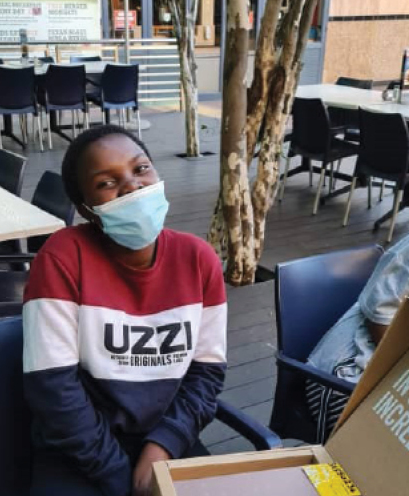
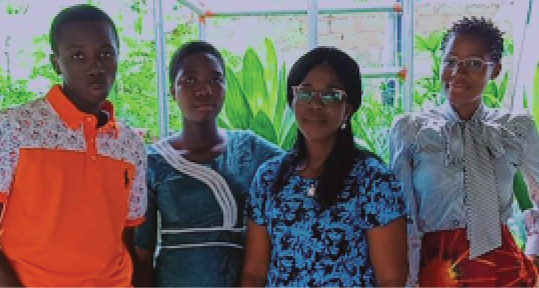
I can work with people from diverse backgrounds and cultures much better now. I will understand that people's lived experiences will determine their responses to differences as they play a part in shaping their perceptions.zimbabwe paylp participant
september 2021
Spotlight on International Leadership
Meridian believes that peer-to-peer relationships among leaders are critical to cooperation on key global issues. This year, Meridian hosted our twice-annual Welcome to Washington receptions to honor newly arrived diplomats and provide an opportunity for them to meet a cross-section of leaders in Washington, D.C. The 2021 honorees included the Chiefs of Mission from the African Union, Argentina, Australia, Azerbaijan, Belgium, Botswana, Cabo Verde, Colombia, El Salvador, Estonia, Guatemala, Guyana, Haiti, Kenya, Kyrgyzstan, Luxembourg, Mauritania, Oman, Paraguay, Romania, Serbia, Slovakia, South Africa, Thailand, Turkey, Ukraine, Uruguay, Zambia and Zimbabwe, as well as the Taipei Economic and Cultural Office Representative. U.S. Senators Ed Markey (D) and Bill Hagerty (R) joined as special guests to share perspectives on the importance of diplomacy, international engagement and relationship building.

october 2021
Meridian ball transforms
After a 2020 hiatus, the Meridian Ball came back with modifications for these new times. We cut the guest list in half and instituted strict coronavirus procedures, including pre-event COVID testing, proof of vaccination and wearing masks while indoors. “We thought it was appropriate to do ‘belt and suspenders’ — a double protection,” said Ambassador Holliday about the ambassadors and corporate leaders alike who got tested in solidarity ahead of the gala.
Year over year, the Meridian Ball has withstood changes of administrations, societal upheaval, and times of national and global crisis – except for the COVID-19 pandemic. This year over 30 embassies including the United Kingdom, Egypt, Germany and more hosted intimate dinners before reconvening at Meridian House for the dessert and dancing portion of the evening. It is still one of the few events where diplomats, government officials and business leaders from across parties, borders and backgrounds can set aside differences and come together for an evening – silent disco included!
[I] was impressed and touched to see ambassadors and corporate leaders coming to get swabs so they could go to the gala. People needed it and wanted it for their sanity.Ambassador Stuart Hollidayin The Washington Post
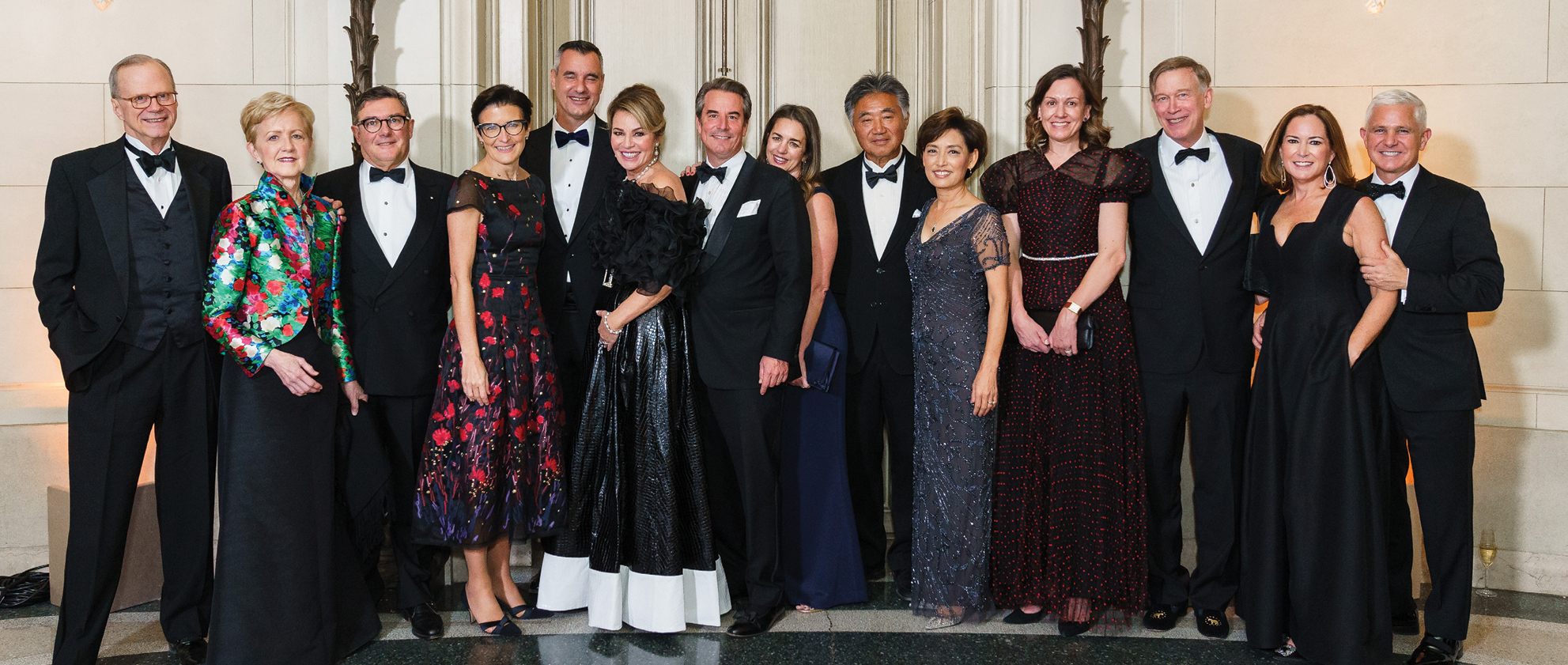
november 2021
Climate takes center stage
Ahead of COP26, Meridian pressed on key climate issues like balancing international energy requirements in Just Energy as well as Global Energy Diplomacy tackling the reality of natural gas needs.
The fully virtual 10th Annual Meridian Global Leadership Summit zeroed-in on how governments, businesses and civil society are tackling the world’s greatest problems through an increasingly-relevant Environment, Social, and Governance (ESG) lens. The program featured 50 speakers over eight hours of content that engaged more than 400 people globally. One of the more impactful speakers was our Global Citizen Award winner, Biplab Ketan Paul, a two-time alumnus of the State Department’s International Visitors Leadership Program. He was honored for his work improving the lives of the rural poor through his invention BHUNGROO®, a participatory irrigation system based on rainwater harvesting that provides an affordable solution to water scarcity. To date, Paul’s invention has alleviated food insecurity for more than 150,000 under-privileged farming families across India, Southeast Asia, East Asia and Africa.
At the Summit, Meridian launched its inaugural Corporate Systemic Responsibility report which makes the case that corporate social responsibility (CSR) is a new form of non- traditional foreign direct investment that catalyzes value creation in under-developed communities around the world. This report is the first step in Meridian’s Responsible Business Diplomacy Initiative, which builds on the Meridian Corporate Council’s work to drive global economic security, prosperity and innovation by aligning private and public sector leaders on shared priorities and standards required to build a more sustainable, prosperous world for all.
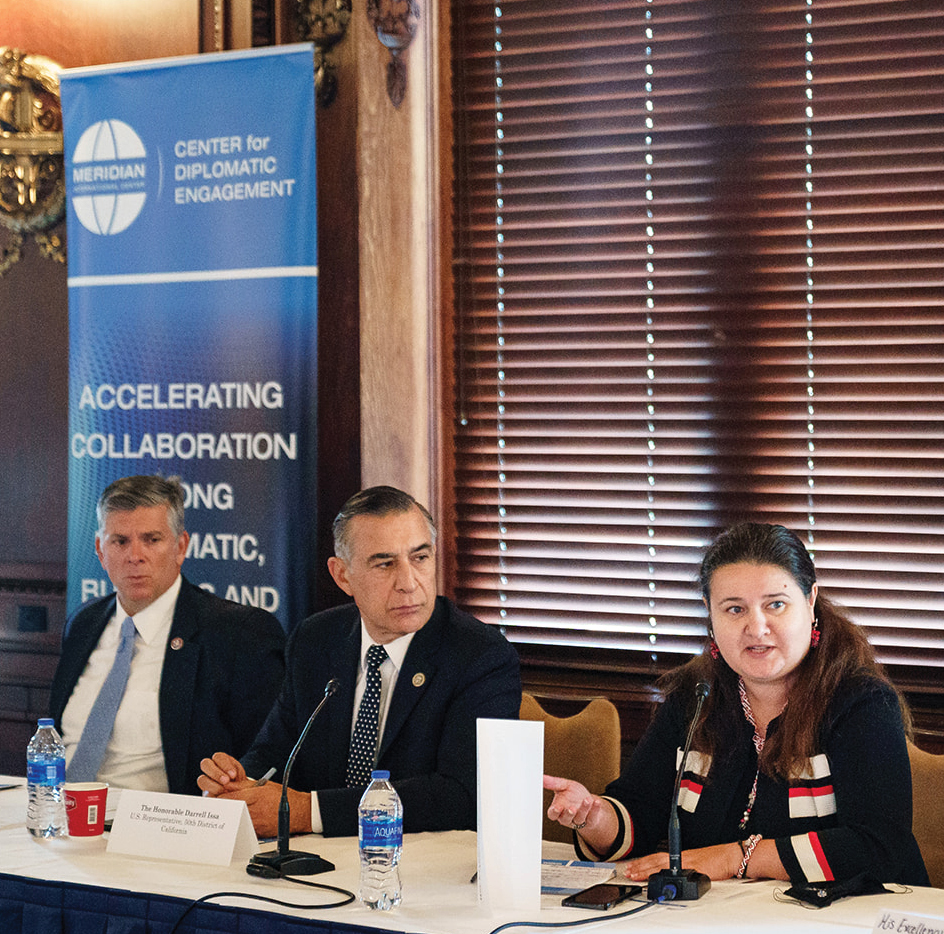
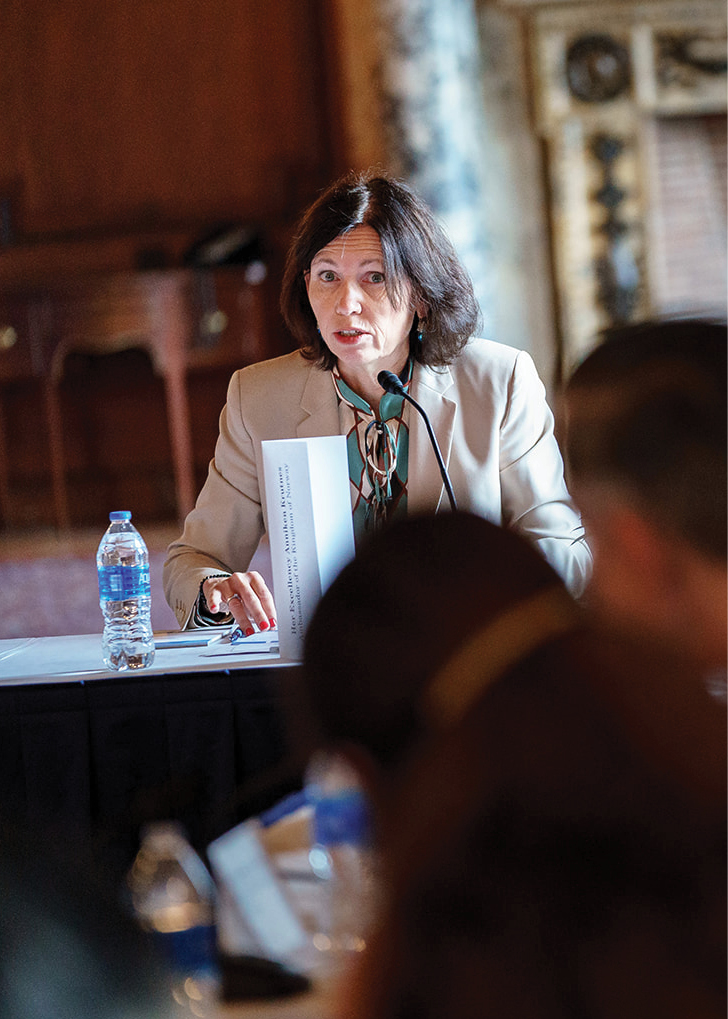
december 2021
Meridian at world expo
In celebration of the dynamic partnership between the United States and the United Arab Emirates, the Meridian Center for Cultural Diplomacy partnered with the Embassy of the United States in Abu Dhabi and the Embassy of the United Arab Emirates in Washington, DC to showcase 50 photographs that recall notable moments, events and people at the at the World Expo in Dubai at the U.S. Pavilion and at The Kennedy Center in Washington, DC.
While Americans and Emiratis had collaborated in education, medicine and business in earlier years, the official relationship began with U.S. recognition of the UAE’s founding in 1971 and has built steadily in depth and breadth through diverse, forward-looking partnerships. The exhibition traces relationships and initiatives that have shaped five key areas of mutual interest: diplomacy and security, trade and business, health and sports, education and environment, and arts and culture. Visitors discovered the shared UAE-U.S. history through human stories, voices and images.
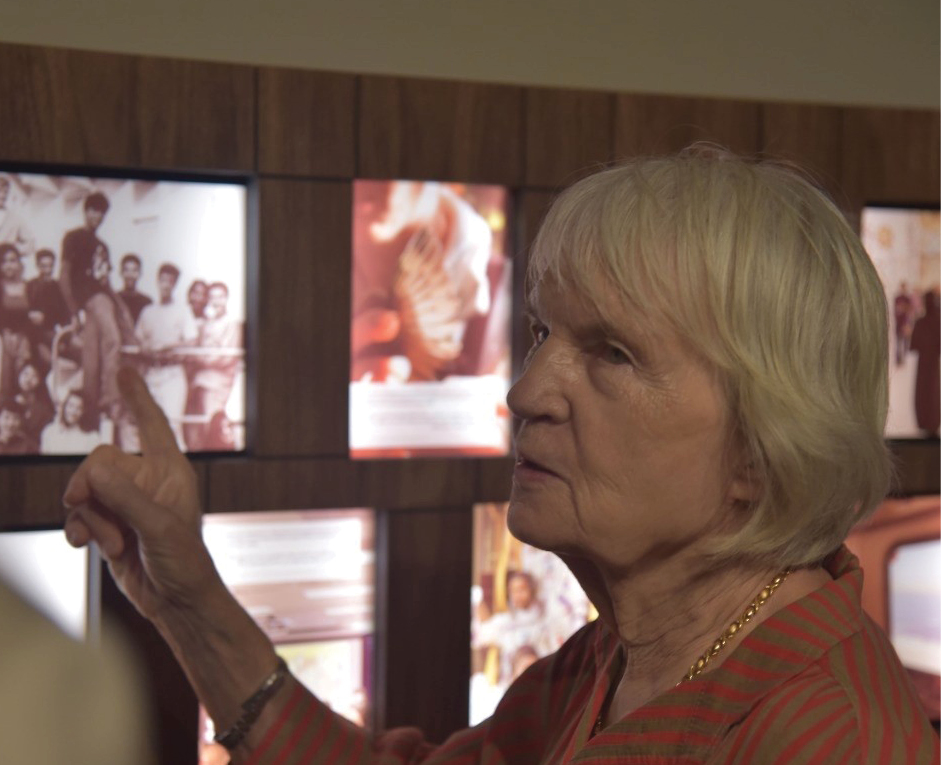

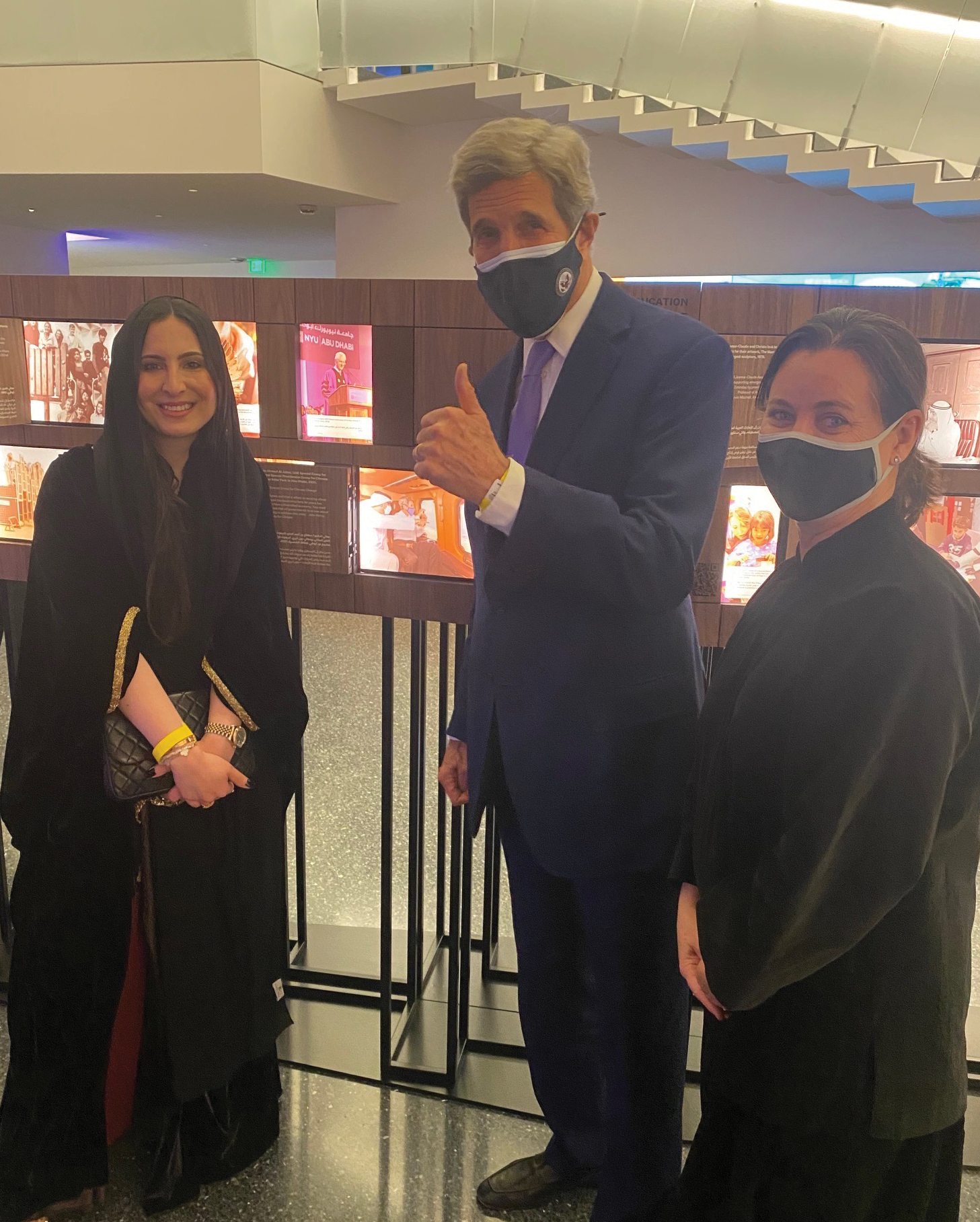
Our Councils
Get engaged
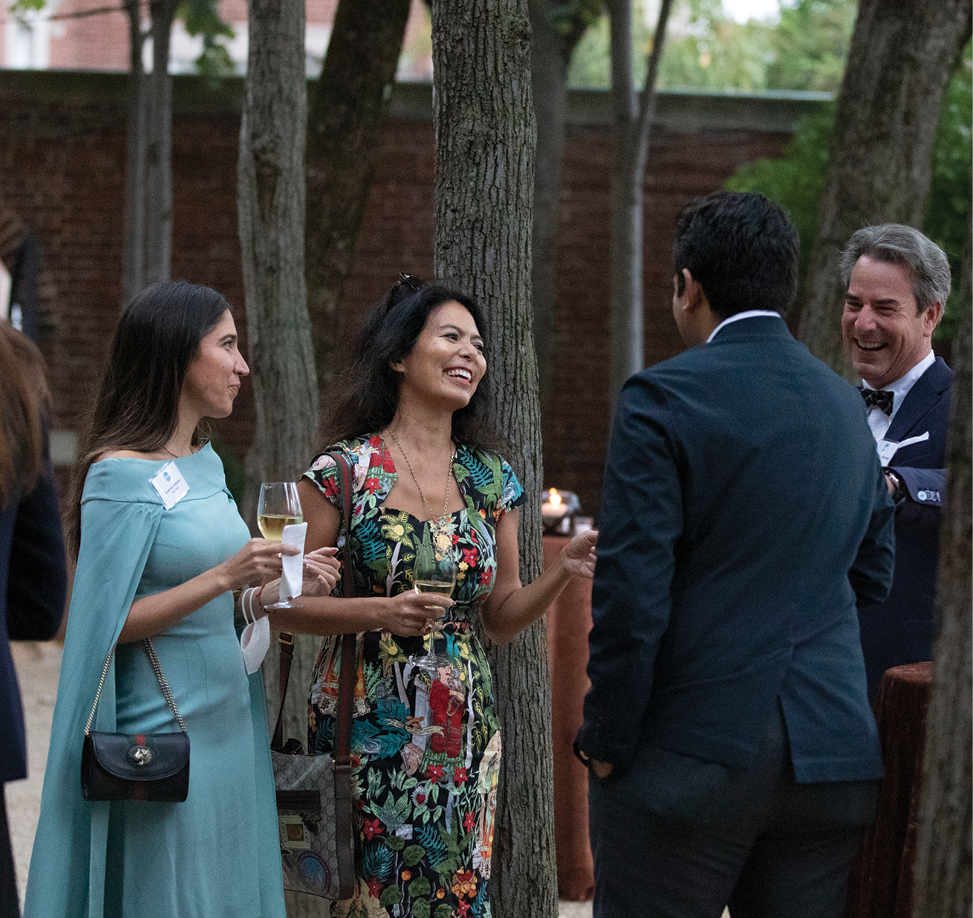
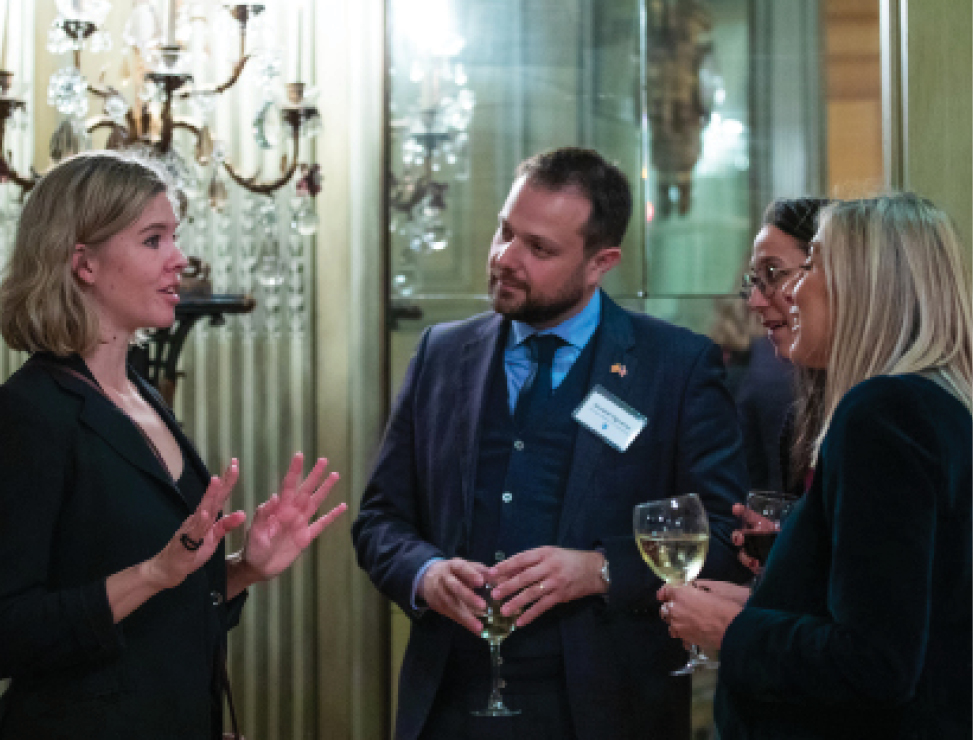
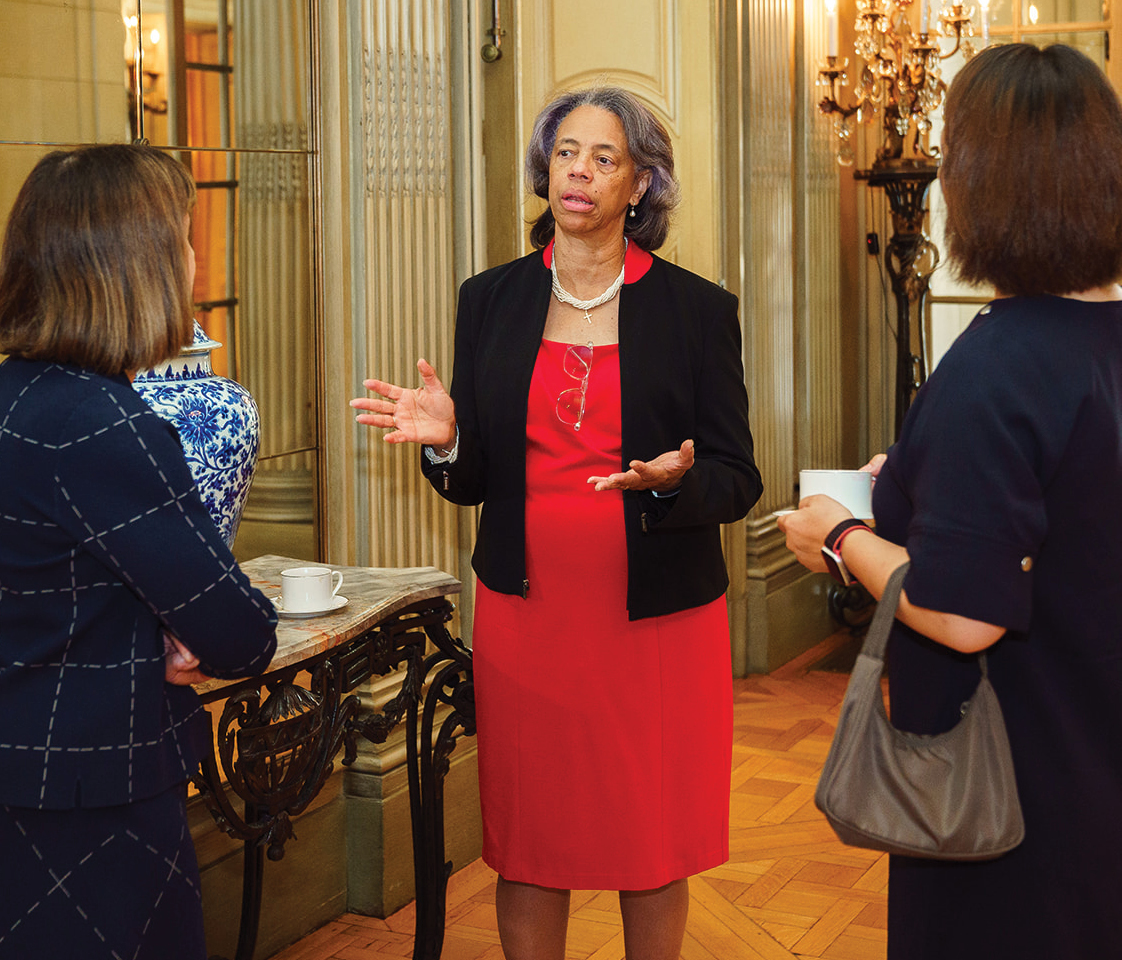
THE MERIDIAN CORPORATE COUNCIL provides a platform for exchange, dialogue and networking on key global issues among diplomatic, public, private and non-profit sector leaders. Through this exchange, members are better equipped to navigate critical challenges and opportunities in a complex international environment. Drawn from wide-ranging sectors, member companies and organizations represent Fortune 100 and 500 companies that are leaders in corporate social responsibility and international initiatives.
Established in 2012, the RISING LEADERS COUNCIL is a network of mid-career, international affairs professionals from the diplomatic community and the public and private sectors who work together to foster substantive exchange of ideas on global issues of the day while strengthen- ing peer relationships.
THE MERIDIAN COUNCIL is a global network of leaders and advisors who provide vital support that helps strengthen international capacity to solve the global challenges of our times. Through exchanges with senior and rising leaders in government, the foreign diplomatic corps, the arts, and the private sector, Meridian council members help build a more just society, greater international security, and more inclusive prosperity for all people.
THE CULTURAL DIPLOMACY LEADERSHIP COUNCIL is a network of leaders and advisors around the United States and the world who believe in employing the arts and culture as a tool of diplomacy and global engagement. Council members are committed to supporting the Meridian Center for Cultural Diplomacy, which serves the U.S. government, private sector and the diplomatic community through creative programming, such as exhibitions, cultural exchanges, panel discussions, lectures, film screenings and concerts.
Our donors
Thank you to our supporters
We embraced the new normal in 2021 and continued to advance our mission in ways we never have before. It would not have been possible if it were not for you. Our supporters. Our network. You make diplomacy possible. Thank you.
